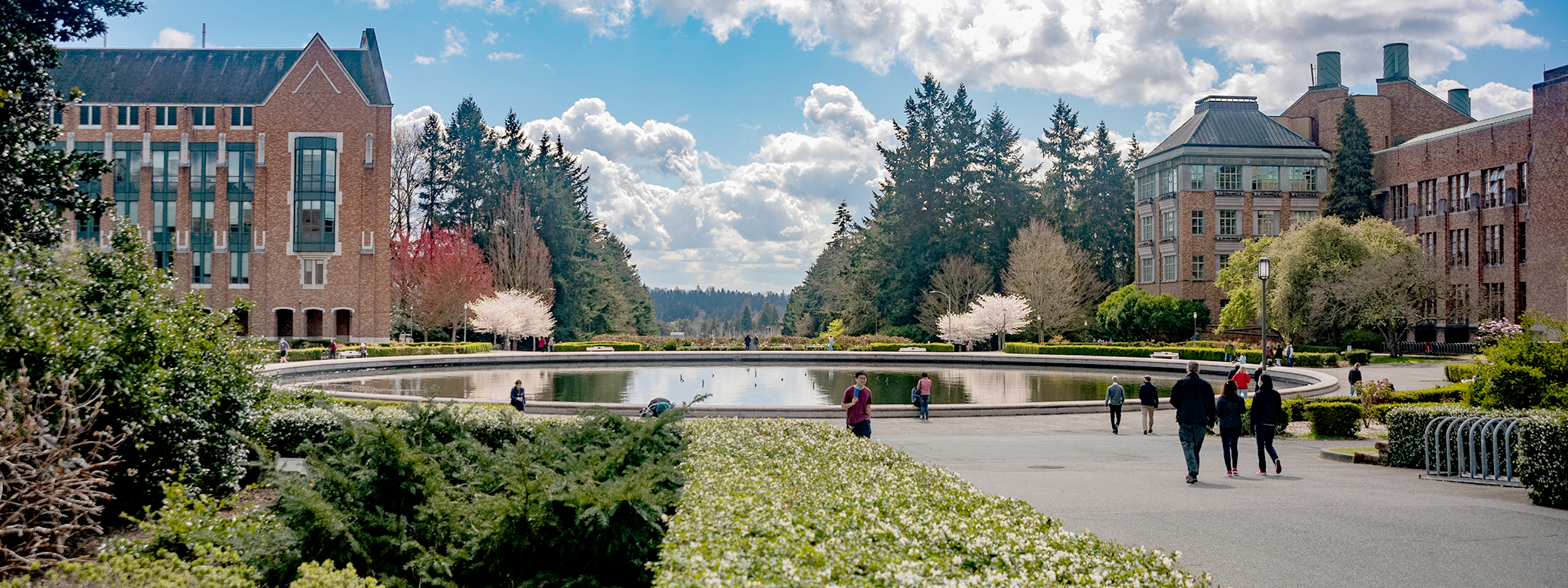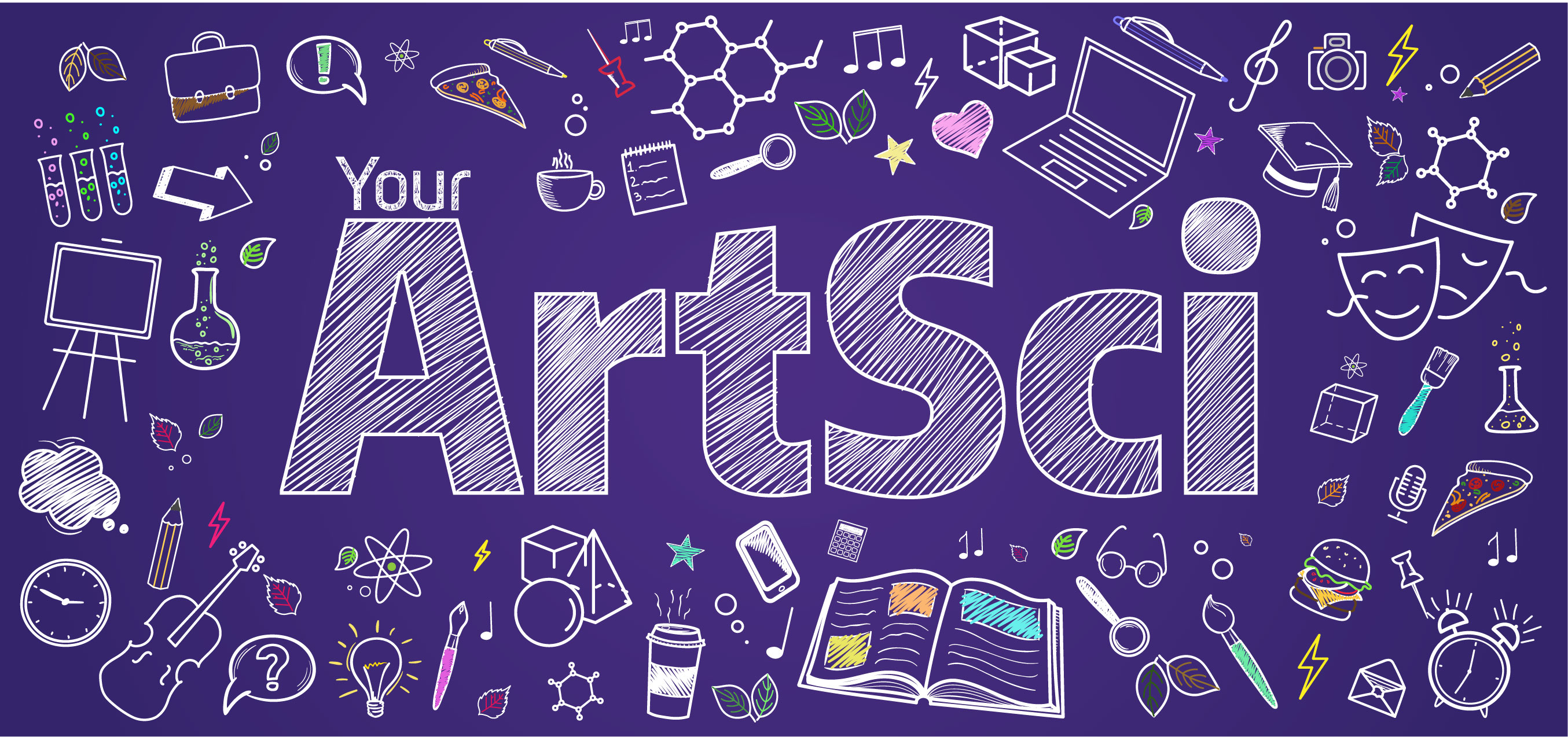
As you think about summer quarter 2025 course registration, check out these unique Arts & Sciences offerings, including in-person, online synchronous, and online asynchronous course options. These courses are open to all students, have no prerequisites, and fulfill Areas of Inquiry requirements as noted.
Abbreviations for Areas of Inquiry: A&H (Arts & Humanities), SSc (Social Sciences), NSc (Natural Sciences), DIV (Diversity), Reasoning (RSN), W (Writing Option).
The Environment
Thinking Globally
Media & Culture
Religion, Ethics & Other Big Questions
The Body
More Cool Courses
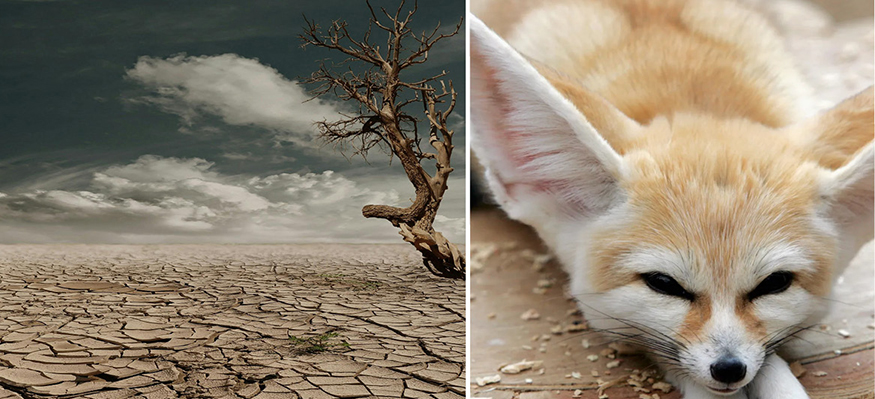
The Environment
A Bug’s Life: Entomology for Non-Entomologists
BIOL 497 A
Full Term, In Person
(listed as “Special Topics in Biology”)
Have you given much thought to insects, besides swatting them away? Insects illustrate complex concepts that apply to all aspects of life, even childhood memories. Learn about insects through the lens of evolution, with topics that include forensic entomology and seasonal dynamics. Your final project will explore your unique and personal take on insects. Praying mantises will be available for more memory-making.
Jen Paur, Biology
3 credits, NSc
Our Global Environment: Physical and Human Dimensions
GEOG 205
Full Term, Asynchronous Online
Evaluate causes, consequences, and solutions to environmental problems through a geographic perspective that emphasizes spatial patterns of phenomena, relationships between different places, and interconnections between people and environment. Course topics include climate, atmosphere, water, ecosystems, and soils.
Instructor TBD, Geography
5 credits, NSc
Apocalypse and Popular Culture: Climate, Catastrophe, and Imagination
CHID 211 A
A Term, In Person
Explore “the post-apocalyptic imagination” through renderings of the end of the world within popular cultural forms — from film to graphic novels to contemporary fiction — with particular attention to depictions of climate catastrophe. Consider how the "imagining of disaster" shapes the limits and possibilities of the cultural moment in which we are living and dying.
Annie Dwyer, Comparative History of Ideas
5 credits, AH, W
Introduction to Conservation Biology
BIOL 126
Full Term, Asynchronous Online
Explore the incredible diversity of life on Earth and learn how scientific principles are used in the conservation of biodiversity. A central course theme is “hope.” While loss of biodiversity is a concerning societal issue, successful case studies in conservation — ranging from sea turtles, peregrine falcons, Indian Rhinos, and others — illustrate reasons for hope and action in conservation biology.
Berry Brosi, Biology
3 credits, NSc

Thinking Globally
Global Activism
JSIS B 305
Full Term, Asynchronous Online
Explore global activism through various social and political movements, examining how marginalized communities mobilize across national and international contexts -- including social media’s role in amplifying voices, driving participation, and fostering connections. Research, analyze, and present activism projects using multimedia, engaging with experts and diverse worldwide communities.
Andrea Arai, International Studies
5 credits, SSc, DIV
Geographies of Global Inequality
GEOG 230
A Term, Asynchronous Online
Learn about the shifting division of labor across the globe and the role of the international development industry in shaping economic and social inequality. As this course examines relationships between economic globalization, the development industry, and rising global inequality, students will explore what it means to say that Western, advanced economies are not the norm.
Instructor TBD, Geography
5 credits, DIV, SSc
US in the World
JSIS B 360
Full Term, Asynchronous Online
Explore US foreign policy history from colonial times to the mid-20th century -- the history behind current events. Learn how policymakers and citizens shaped and reacted to foreign policy decisions from the American Revolution through the Cold War through an investigation of key events, figures, and shifts in US foreign relations.
Daniel Bessner, Jackson School of International Studies
5 credits, SSc
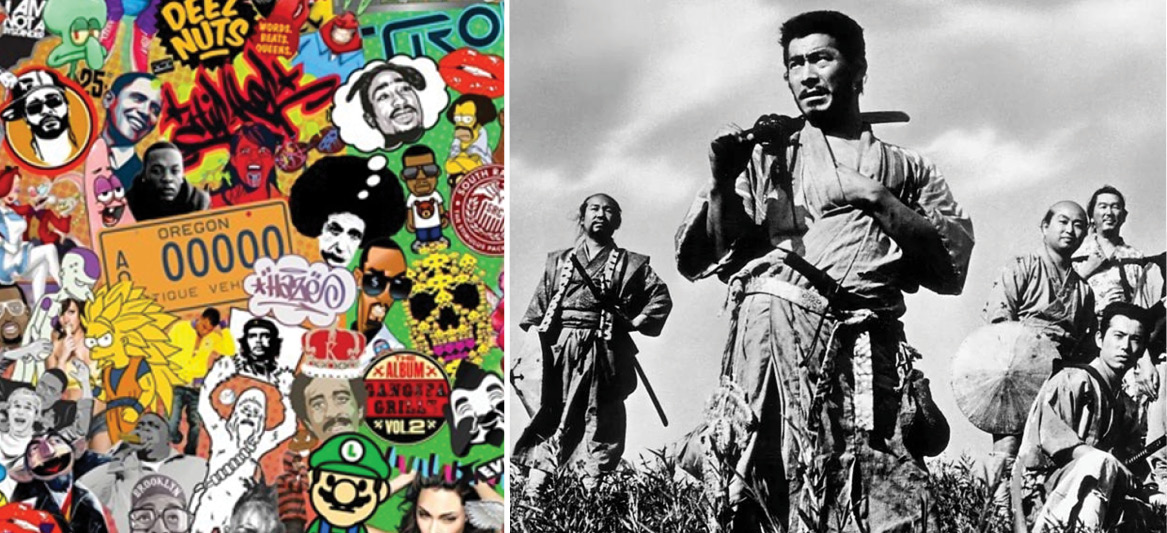
Media & Culture
Anthropology of Pop Culture
ANTH 360
Full Term, In Person
What do vampire romances, designer sneakers, and YouTube beauty tutorials have in common? In this class, students will bring into anthropological practice a toolkit of conceptual theories from the fields of cultural studies, linguistics, art history, and film to discuss pop culture’s means of production, its impact in the world, its capacity to transform, and its agency as it traverses hands and eyes.
Eliyah Omar, Anthropology
5 credits, SSc
Border Cinema & Media
CMS 275 A
A Term, In Person
(listed as “Perspectives on Visual Culture”)
Through cinema, reality TV, video games, and more, students in this course will analyze and connect historical ways of seeing the US-Mexico border with recent border politics. There will be opportunities to create media as you think critically about the politics of picturing borders.
Diana Flores Ruiz, Cinema & Media Studies
5 credits, A&H, SSc, DIV
Introduction to Japanese Cinema and Media
JAPAN 325
Full Term, Asynchronous Online
Watch and delve deeply into 15 iconic films from a rich and robust cinematic tradition. This course will explore multiple genres of Japanese film, with particular attention to structures of power and representations of marginalized subjects. Films will be contextualized within global, national, and local historical settings, and within the development of the cinematic form.
Ted Mack, Asian Languages & Literature
5 credits, A&H, DIV
Social Effects of Technology
COMM 303
A Term, In Person
Examine the impact of information and communication technology and social media on individuals and society. Through a variety of theoretical, empirical, and popular understandings, students will critically assess the affordances of technology that may bring about processes and mechanisms of change. This is an active learning course with many opportunities to get hands-on with social media.
Katy Pearce, Communication
5 credits, SSc
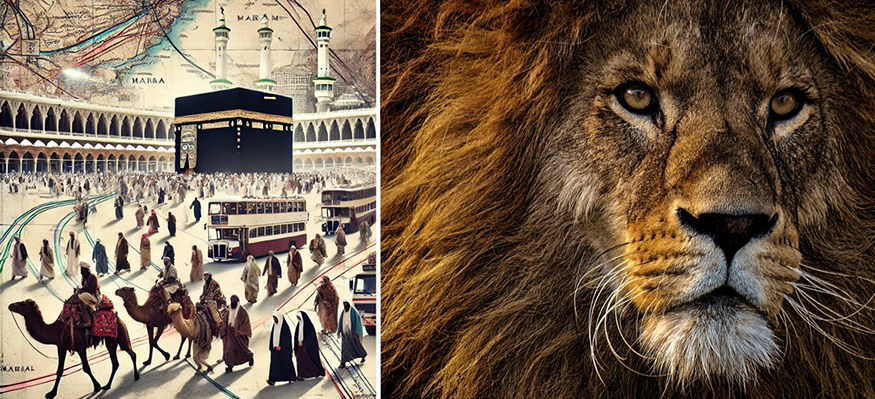
Religion, Ethics & Other Big Questions
Roads to Mecca: Pilgrimage Writings from the Islamic World
MELC 286 A
A Term, Hybrid Format
(listed as “Themes in Middle Eastern Literature”)
Explore pilgrimage narratives from across the Muslim world through literature, film, and historical accounts. By exploring diverse narratives spanning Malcolm X’s “Hajj” to Uighur shrine pilgrimages, the class will unpack the cultural, political, and literary dimensions of pilgrimage.
Aria Fani, Middle Eastern Languages & Cultures
5 credits, A&H, SSc, W
The Question of Human Nature: Talking Animals
CHID 110 A
A Term, In Person
How do stories about talking animals — in different times and cultural contexts — challenge assumptions about what it means to be human, when we are “talking animals” ourselves? How does their speech challenge widely held definitions of what it means to be human, what counts as communication, and the origins of language? Explore what animals and their speech represent.
Erin Gilbert, Comparative History of Ideas
5 credits, AH, SSC, W
Sociology of Morality
SOC 301 A
Full Term, In Person
(listed as “Special Topics in Sociology”)
Why do scientists believe a tendency toward morality is a fundamental aspect of being human and necessary for survival in groups? In this course, learn what constitutes morality, how that differs across time and place, why morality both unites and divides us, and how social scientists measure moral beliefs. Rather than agreeing on a “best” moral system, students will learn why people disagree so much about what it might be.
Mark Igra, Sociology
5 credits, SSc
Comparative Study of Death
RELIG 320 / ANTH 322
Full Term, In Person
Death is inevitable but shrouded in mystery and often surrounded by fear, dread, and uncertainty. Learn about the profound and diverse ways various cultures navigate death, grief, and the afterlife. We will explore understandings and practices of death as a representation of culture and social organization and situate death within a broader understanding of biopolitics and decolonization. Guest speakers include a death doula, spiritual leaders, and community representatives.
Paula Saravia, Anthropology
5 credits, SSc
Philosophy in Literature
PHIL 347
B Term, In Person
Through reading religious literature, novellas, short stories, and creative non-fiction — including Vyasa's Bhagavad Gita, Dostoevsky, Borges, Sartre, Toni Morrison, Oliver Sacks, and Ted Chiang — this discussion-based course will explore theories about reality, the nature of perception, and value, with ample opportunity to discuss, consider, and write philosophical fiction or other forms of non-traditional essays.
Charles Ives, Philosophy
5 credits, A&H, SSc, W
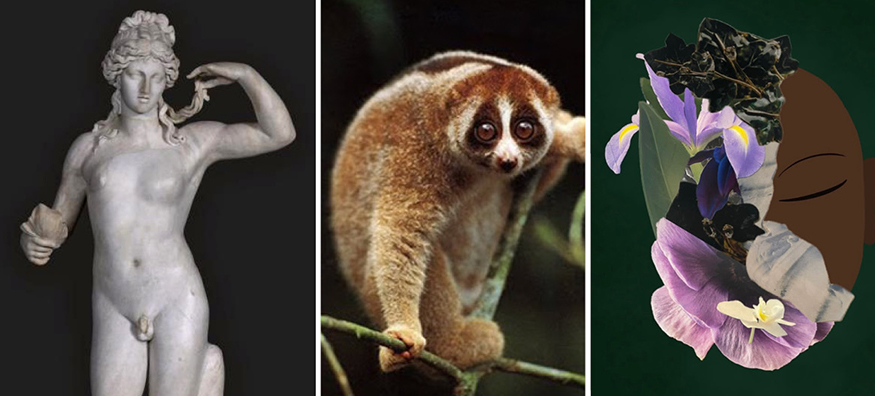
The Body
Comparative Systems of Healing
ANTH 375
A Term, Asynchronous Online
Explore the intersection of medicine, society, and anthropology as you deepen your understanding of how historical, socio-cultural, and political-economic factors shape healing journeys and experiences across geographies and landscapes. This course will pay particular attention to healers' perspectives through ethnography, autobiographies, and interviews with healers, practitioners, and their patients.
Paula Saravia, Anthropology
5 credits, SSc
Sex, Gender, and Representation in Greek and Roman Literature
CLAS 328
Full Term, In Person
From the homoerotic lyrics of Sappho to the wild world of Petronius' Satyricon, the ancient world was full of weird, disturbing, beautiful depictions of gender and sexuality. Explore how ancient people thought about sex, gender, desire, sexuality, and bodies across a range of texts, and — though this part of the ancient world was very different from our own world— how connected the past and present are.
Laura Harris, Classics
3 credits, A&H, SSc, DIV
Introduction to Transgender Studies
GWSS 374
Full Term, Synchronous Online
What does it mean to look beyond a simplistic binary of "man" and "woman"? Starting with definitions of sex and gender, we blur these categories, complicating them with sexuality, race, class, ability, history, and location. Students will learn how transgender studies scholarship challenges reductive definitions of gender and sex, and gain the tools to understand and contribute to contemporary political debates.
Instructor TBD, Gender, Women & Sexuality Studies
5 credits, SSc, DIV
Principles Of Biological Anthropology
BIO A 201
Full Term, In Person
Learn about evolutionary and genetic processes and the roles they have played in shaping the biological and behavioral adaptations of the Primate Order — humans, nonhuman primates, and our ancestors. We will consider what it means to be human and how we “fit” into the larger natural world, examining past, present, and future human variation, the complex interactions of biology, behavior, and our environments.
Christy Harper, Anthropology
5 credits, NSc

More Cool Courses
Communicating Mathematics Through Sports Data
MATH 380 A
Full Term, Hybrid Format
(listed as “Intermediate Topics in Mathematics”)
Transform sports stats into compelling stories with math! Learn Excel/R/Python while mastering how to explain complex data to any audience — essential skills for today's data-driven world. In a culminating video project, students will transform seemingly complex sports data (using real Sports Reference datasets) into engaging stories for general audiences.
Madeline Brown, Mathematics
4 credits, NSc
Contemporary Spain
SPAN 360 / JSIS 360
Full Term, Asynchronous Online
Explore the political, economic, and social transformations that have shaped Spain's modern landscape, as well as its vibrant cultural heritage and influence on the global stage. Whether your interests lie in history, politics, economics, culture, or international affairs, this course offers an exciting exploration of contemporary Spain.
Inma Raneda-Cuartero, Spanish
5 credits, A&H, SocSci
Witchcraft - From History to Pop Culture
GERMAN 298
A Term, Asynchronous Online
(listed as “Topics in Literature and Culture”)
The fascination with witches developed in parallel in different cultures and languages, as shown by recent iterations of Japanese anime and Disney live-action movies. With witchcraft as the focal point, this class explores the perception of the female and the two central poles of understanding the world in the medieval and pre-modern world: religion and magic. Topics include the age of witch trials and why many people today are drawn to Wicca and modern magic.
Annegret Oehme, German Studies
5 credits, A&H, DIV
Business Essentials of Tribal Gaming
AIS 275 A
Full Term, In Person
(listed as “Introductory Topics in American Indian and Indigenous Studies”)
Explore how the essentials of business can be applied to the tribal gaming and hospitality management field, including customer markets, ethics, core business processes, and people management. Class will be held onsite at the Muckleshoot and Snoqualmie Casinos from August 18-22nd, where students will learn from industry experts and network with business and hospitality management professionals.
John McClain, Foster School of Business
3 credits, SSc
Intensive Language Programs
In addition to the courses above, the UW offers intensive summer programs for a dozen languages, allowing students to complete a year of language study in only nine weeks. Learn more about UW intensive foreign language summer programs.
More Stories

AI in the Classroom? For Faculty, It's Complicated
Three College of Arts & Sciences professors discuss the impact of AI on their teaching and on student learning. The consensus? It’s complicated.

What Students Really Think about AI
Arts & Sciences weigh in on their own use of AI and what they see as the benefits and drawbacks of AI use in undergraduate education more broadly.

A "gesture" to jump-start careers
To prepare students for professional success, the UW College of Arts and Sciences offers “gesture,” a mock startup company where student interns gain skills that employers seek.
